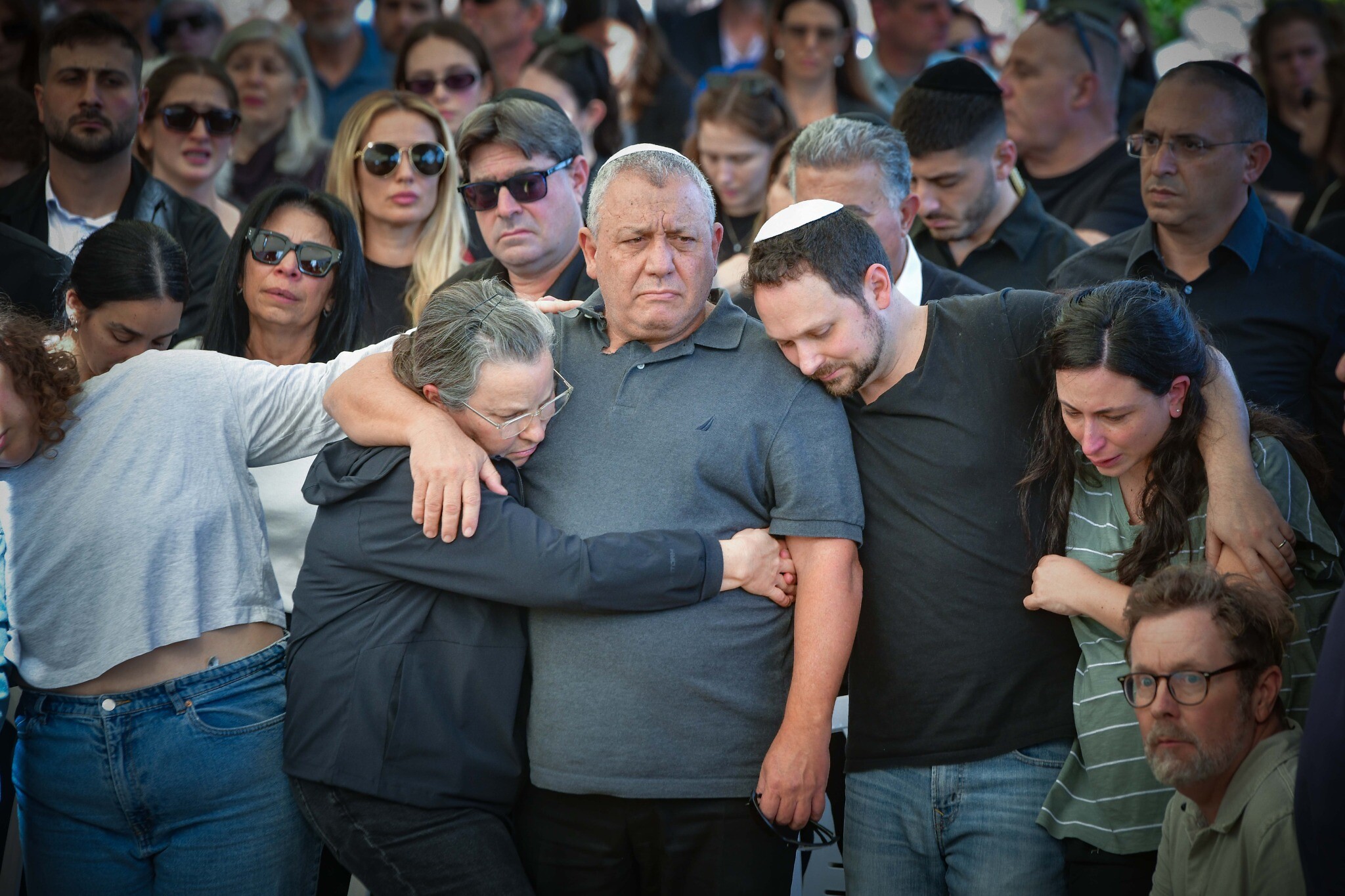



National Unity party lawmaker Gadi Eisenkot, who served as a war cabinet observer from the start of the war in Gaza until his party departed from the government last Sunday, accused Prime Minister Benjamin Netanyahu of putting off a vote in that forum authorizing the Israel Defense Forces’ operation in Rafah, causing it to be delayed by three months.
In an interview with Channel 12 that aired Saturday, Eisenkot, a former IDF chief of staff, said that the Netanyahu he worked with over the last eight months was “a different Netanyahu” than the one he previously worked with when it came to making decisions. (It was Netanyahu who appointed Eisenkot as chief of staff in late 2014.)
In previous years, Netanyahu would have made decisions “based purely on security considerations,” Eisenkot said. “Here, I saw decisions being made entirely differently, with delays… with antics.”
“Even the story of the invasion of Rafah was simmering away for three months,” he continued. “Over on their [media] channels, they report that Gadi Eisenkot and Benny Gantz are the ones who [prevented] the attack on Rafah, that the prime minister is determined and wants to proceed in Rafah, only we’re the ones holding him back.
“On the contrary,” Eisenkot said, accusing the prime minister of stretching out the process “like chewing gum.”
He specified that far-right National Security Minister Itamar Ben Gvir was a highly negative influence on Netanyahu’s decisions. “The alternate prime minister, Itamar Ben Gvir, is the most influential minister,” charged Eisenkot. (Ben Gvir is not the alternate prime minister.) “Even though he is not part of the war cabinet, he’s there in spirit. We wanted to invade Rafah in February, and Netanyahu dragged out the decision until May.”
Eisenkot also claimed Netanyahu narrowed the mandate given to Israel’s hostage-ceasefire negotiators in April, in breach of a war cabinet decision, because of pressure from far-right Finance Minister Bezalel Smotrich. He also said the prime minister opposes a role for the Palestinian Authority in Gaza, despite the security interests for Israel, for fear of criticism from the far right.
Added Eisenkot: “Ulterior motives and political considerations that infiltrated the room made us leave [the government]. There was no question in the beginning of whether we’d [join the government]. In the first few months, everything was conducted professionally, and in the last three months we understood that ulterior motives entered the cabinet room.”
In a statement released minutes after Eisenkot’s interview, Netanyahu’s Likud party accused him of lying.
“In stark contrast to Eisenkot’s claim, the prime minister was the one who pushed for action in Rafah, even at the cost of a confrontation with the Americans,” the statement read. “The prime minister makes decisions all the time, just not the ones that Eisenkot and Gantz pushed for, which would mean surrendering to Hamas.
“The prime minister’s stances are derived solely from national security considerations, which the majority of the public supports, and not from any kind of political pressure,” the Likud statement added, accusing Gantz and Eisenkot of bolting the emergency coalition due to a downward trend for their National Unity party in election polls.
In an interview with Channel 13 that also aired Saturday, Eisenkot said his biggest regret from his time in the war cabinet was not pushing harder to extend the week-long temporary truce struck with Hamas in November to allow for more hostages to be released. During that week, 105 hostages were freed. It is believed that 116 hostages abducted by Hamas on October 7 remain in Gaza, not all of them alive.
Eisenkot also told Channel 13 that had he been prime minister on October 7, he would have resigned after attaining a “strategic balance,” something he says Israel has achieved. He called on Netanyahu to resign or to call early elections to regain the public’s trust.
On serving in the same government as Otzma Yehudit party leader Ben Gvir, Eisenkot said the experience was “very disturbing. I saw a very superficial, impulsive approach that seeks to make headlines, that doesn’t understand the challenges of national security deeply.”
Ben Gvir and far-right Finance Minister Bezalel Smotrich are members of the national security cabinet. Eisenkot told Channel 13 that Netanyahu intentionally keeps information from that forum because the prime minister “doesn’t trust them.”
War broke out on October 7 when Hamas terrorists infiltrated Israel, killing some 1,200 people, mostly civilians, and kidnapping 251, while committing widespread atrocities and sexual assault.
309 troops have been killed during the ground offensive against Hamas and amid operations along the Gaza border. The toll includes a police officer killed in a hostage rescue mission. A civilian Defense Ministry contractor has also been killed in the Strip. In December, Eisenkot’s son, Gal, was killed while fighting in Gaza.



